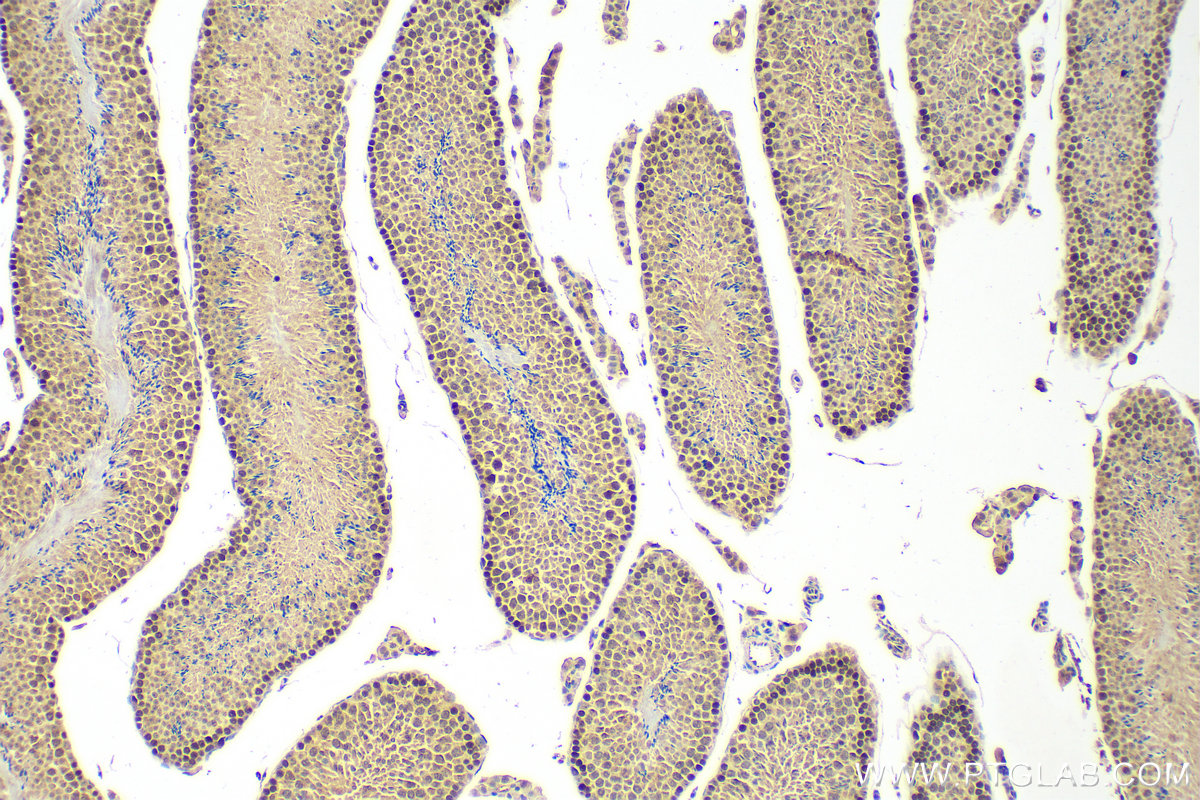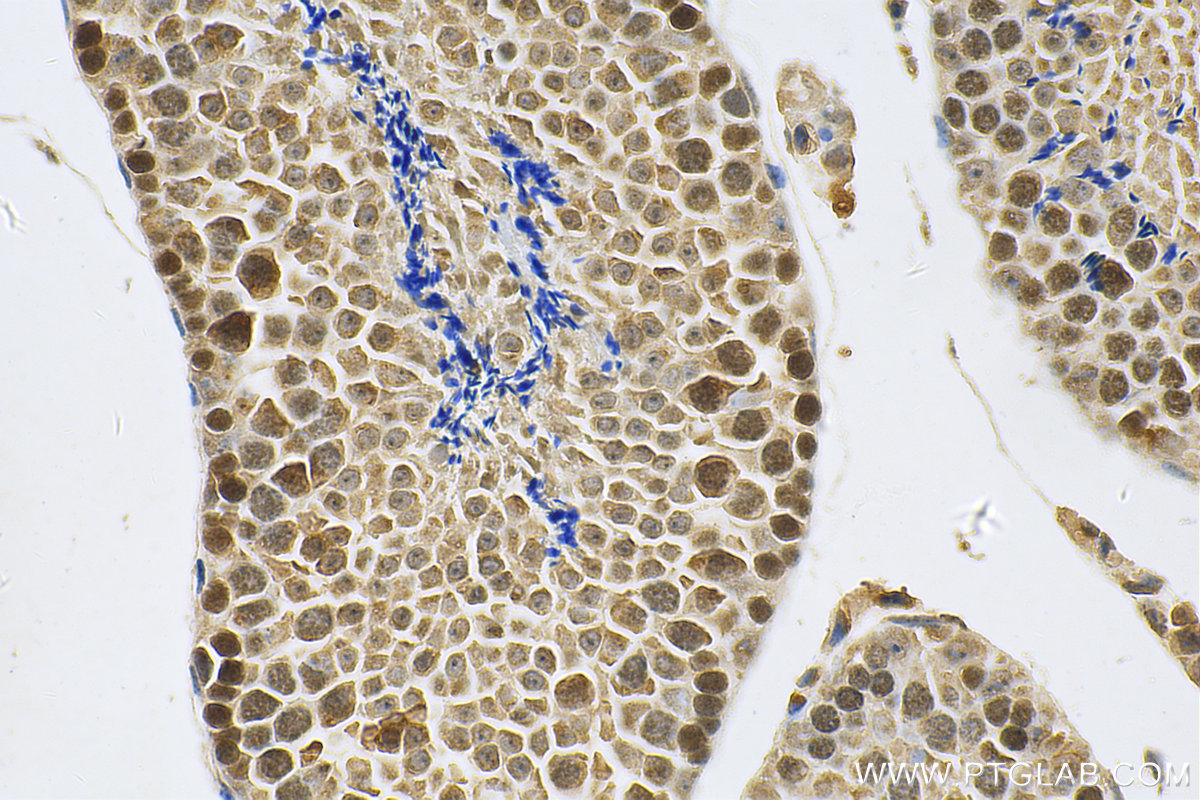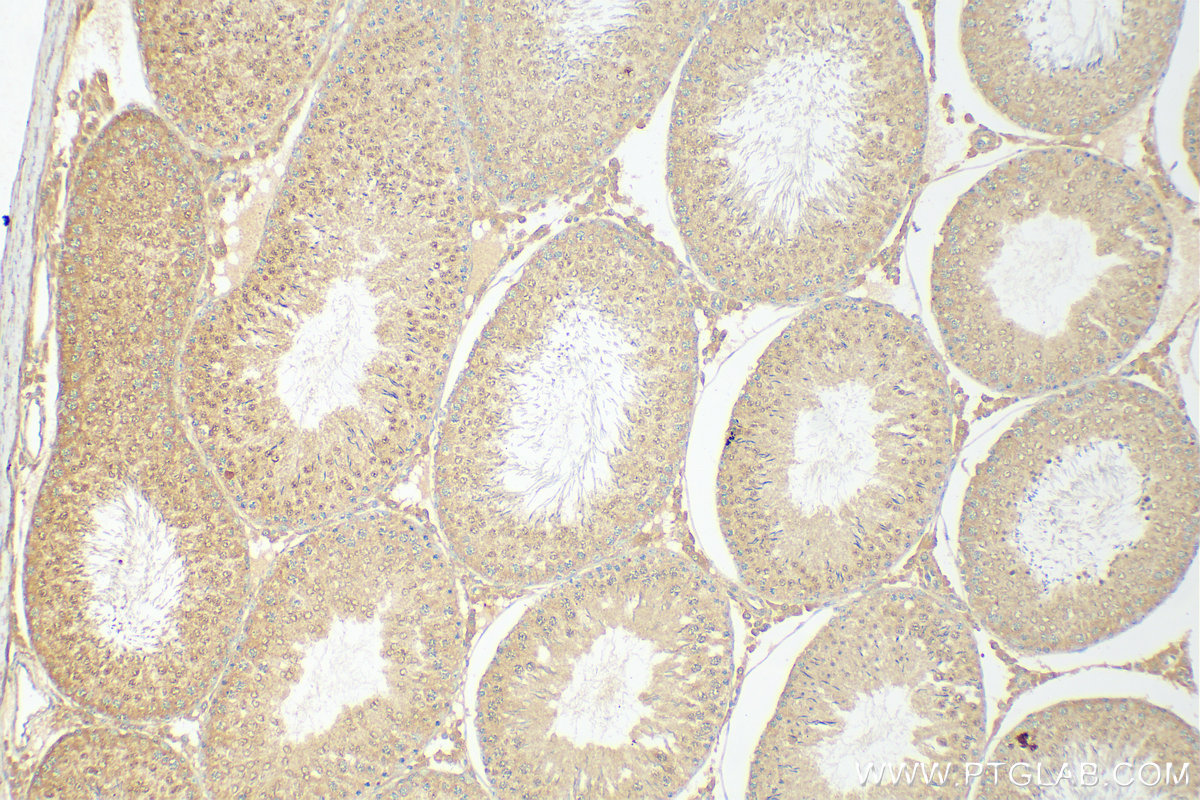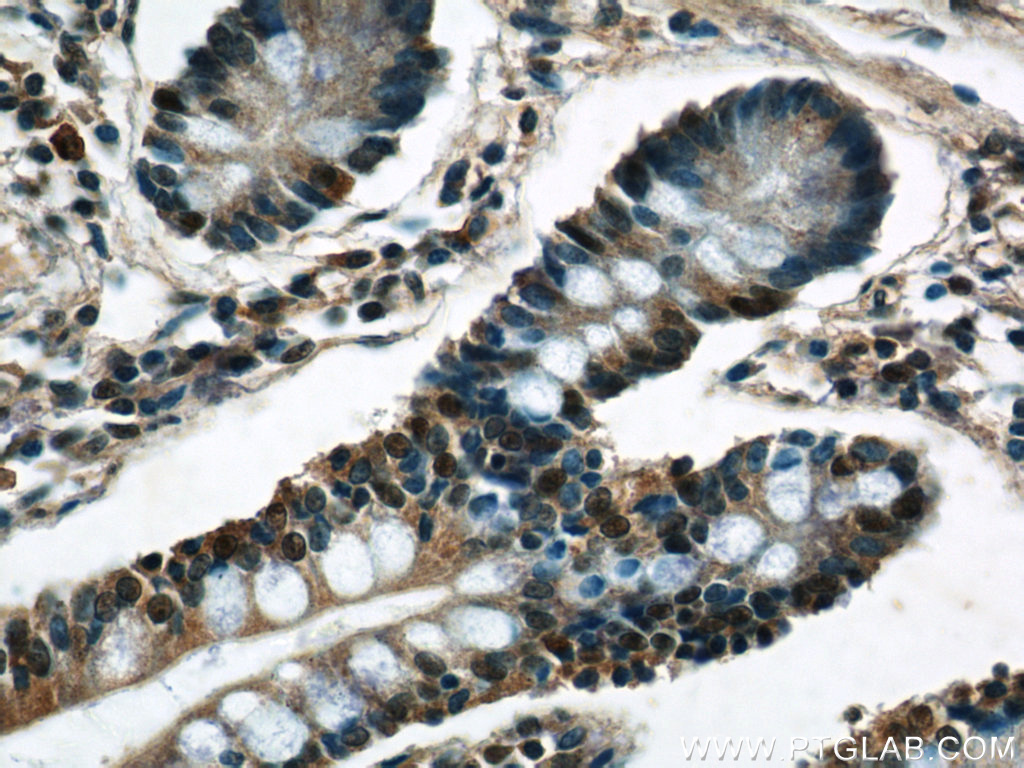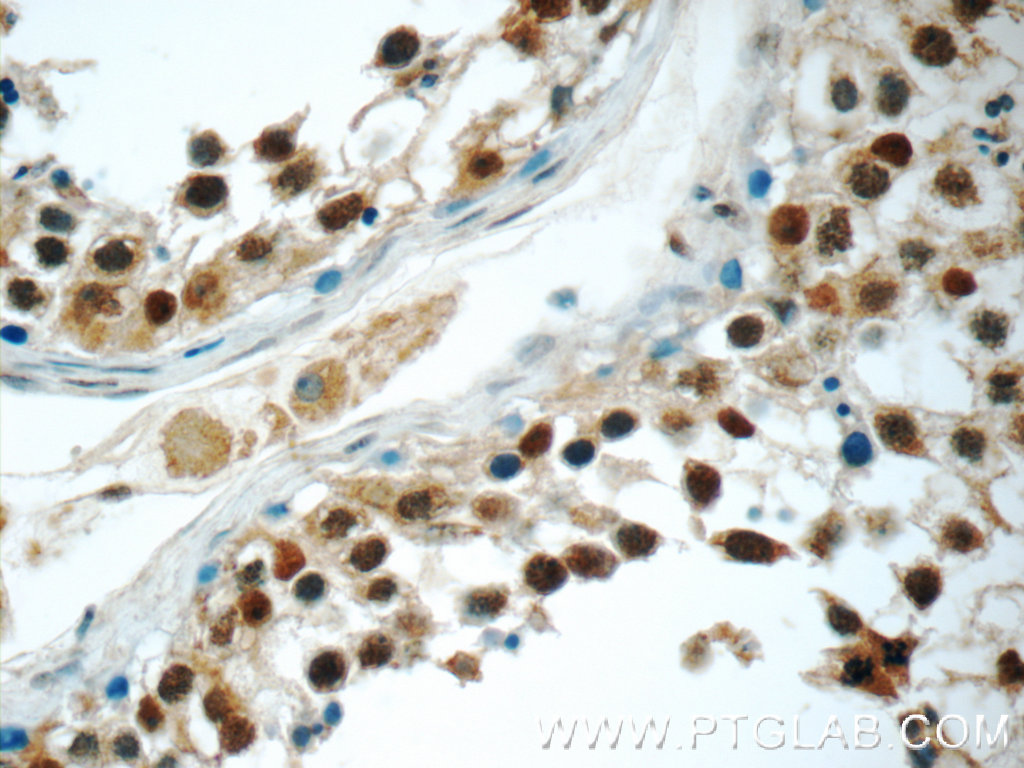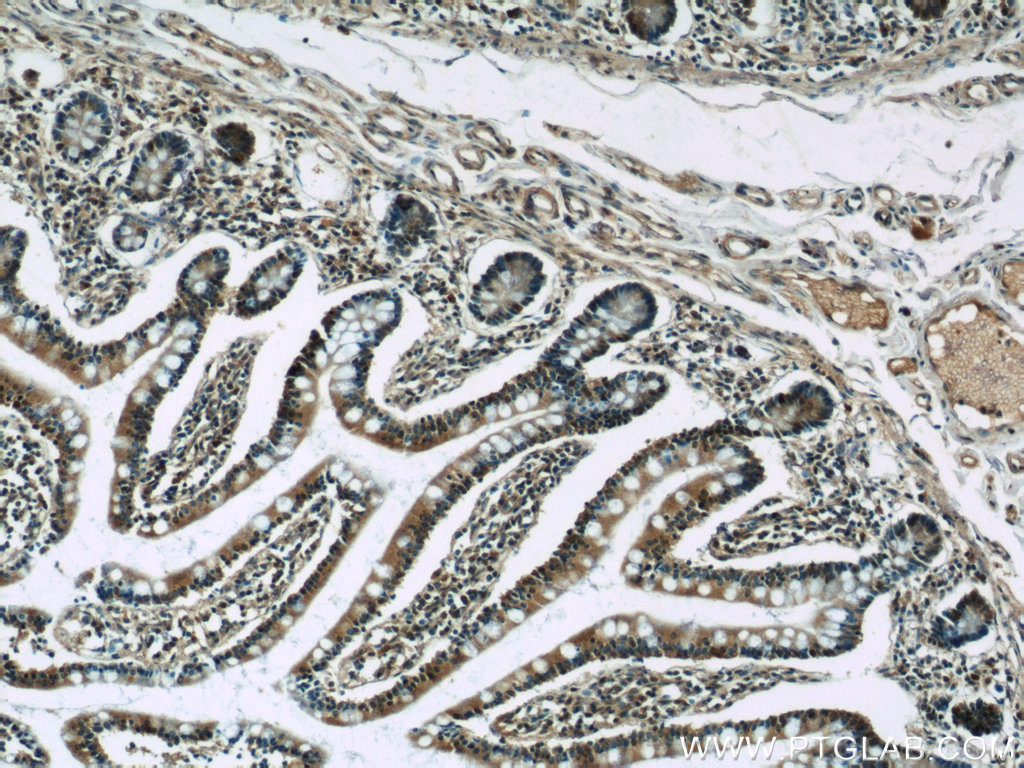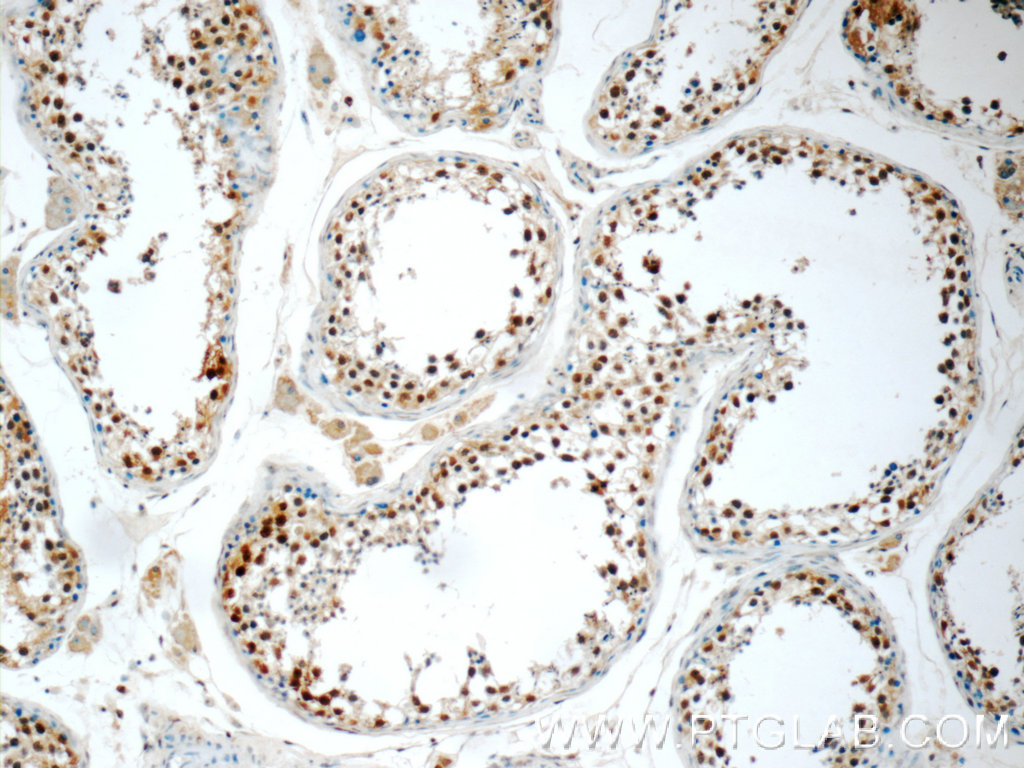验证数据展示
经过测试的应用
| Positive IHC detected in | mouse testis tissue, rat testis tissue, human small intestine tissue, human testis tissue Note: suggested antigen retrieval with TE buffer pH 9.0; (*) Alternatively, antigen retrieval may be performed with citrate buffer pH 6.0 |
推荐稀释比
| 应用 | 推荐稀释比 |
|---|---|
| Immunohistochemistry (IHC) | IHC : 1:50-1:500 |
| It is recommended that this reagent should be titrated in each testing system to obtain optimal results. | |
| Sample-dependent, Check data in validation data gallery. | |
发表文章中的应用
| WB | See 2 publications below |
| IF | See 2 publications below |
产品信息
24867-1-AP targets C22orf41 in WB, IF, IHC, ELISA applications and shows reactivity with human, mouse, rat samples.
| 经测试应用 | IHC, ELISA Application Description |
| 文献引用应用 | WB, IF |
| 经测试反应性 | human, mouse, rat |
| 文献引用反应性 | mouse |
| 免疫原 | C22orf41 fusion protein Ag21756 种属同源性预测 |
| 宿主/亚型 | Rabbit / IgG |
| 抗体类别 | Polyclonal |
| 产品类型 | Antibody |
| 全称 | chromosome 22 open reading frame 41 |
| 别名 | C22orf41, SYCE3, THEG 2, THEG2 |
| 计算分子量 | 88 aa, 11 kDa |
| GenBank蛋白编号 | BC127859 |
| 基因名称 | C22orf41 |
| Gene ID (NCBI) | 644186 |
| RRID | AB_2879765 |
| 偶联类型 | Unconjugated |
| 形式 | Liquid |
| 纯化方式 | Antigen affinity purification |
| UNIPROT ID | A1L190 |
| 储存缓冲液 | PBS with 0.02% sodium azide and 50% glycerol , pH 7.3 |
| 储存条件 | Store at -20°C. Stable for one year after shipment. Aliquoting is unnecessary for -20oC storage. |
背景介绍
C22orf41 is also named as SYCE3 and THEG2. C22orf41 is major component of the transverse central element of synaptonemal complexes (SCS). It formed between homologous chromosomes during meiotic prophase. SYCE3 is a small protein of 88 amino acids that is essential for SC assembly, meiotic division, and fertility (PMID:21637789).
实验方案
| Product Specific Protocols | |
|---|---|
| IHC protocol for C22orf41 antibody 24867-1-AP | Download protocol |
| Standard Protocols | |
|---|---|
| Click here to view our Standard Protocols |
发表文章
| Species | Application | Title |
|---|---|---|
J Steroid Biochem Mol Biol Syce1 and Syce3 regulate testosterone and dihydrotestosterone synthesis via steroidogenic pathways in mouse Sertoli and Leydig cells. | ||
